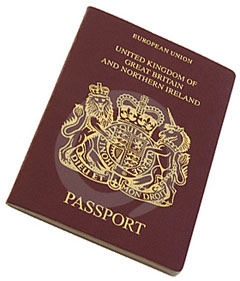|
Intermix.org.uk is a website for the benefit
of mixed-race families, individuals and anyone who feels they have a multiracial
identity and want to join us. Our mission is to offer a view of the mixed-race experience, highlighting icons, film, books, poetry, parenting techniques, celebrities, real lives and much more. Our online forums are a great place to meet others, ask questions, voice your opinions and keep in touch. Sign up for our monthly newsletter and delve into our pages. Want to join in? Become an Intermix member to take part: |
When Being British Is Not Good Enough
 Compensation
claims evaluated partly on race.
Compensation
claims evaluated partly on race.
The case of 83-year-old Diana Elias has drawn attention to
the racist attitudes of the ministry of defence.
Diana was born in Hong Kong to Indian and Iraqi parents who both had
British citizenship and held British passports.
At age 17, Elias was singled out along with other Britons living in
Hong Kong by the Japanese for internment in the Stanley prisoners Camp.
She spent four years in the camp and the ordeal exacted a high price
on the health of her entire family.
In November 2000 the government announced a £167m compensation
scheme for British civilians interned by the Japanese during the Second
World War with each receiving £10,000 as a 'debt of honour'.
Several months after details of the scheme were published, the government
decreed that claimants should show a 'blood link' with this country,
disqualifying up to 2,400 whose forebears worked and lived in the Far
East, often for the Armed Forces or the colonial administration.
The UK government however have told Diana that although she was interred
because she was British she is in fact not quite British enough, arguing
that she has no 'ancestral connection' to the land of her passport
and is therefore not eligible for compensation from the government.
Diana says, 'what this 'blood link' means is that being British is
not good enough. You only count if you were born here in the UK, or
your family originates from here. If not, then you are another type
of British. A type of British whose suffering and rights do not matter
one bit. I was born British. I have always been British. My grandparents
were British. My father was British and so was my mother. I can remember
my father taking
great pride in the fact he was British and so was his family. And I
was proud to be British. I still am.'
Diana has been campaigning for the past five years to get the UK government
to change its mind. This week the Court of Appeal is to decide whether
the government was justified in deciding that to qualify as British
an individual must have a 'blood link' through birth or ancestry.
The court's verdict will reignite the debate on British citizenship,
raising fresh questions over Britain's relationship with the Commonwealth
and also threatens to embarrass the MoD amid accusations of racism.
An internal government memo revealed during the case suggested that
a person's right to compensation was evaluated partly on race. Written
in July 2001 by the former head of the MoD's Veterans Agency, it states:
'It is true to deny we are being racist, but we are in fact including
race as deciding factor as part of our eligibility criteria.'
Although Diana did receive £10,000 compensation after she took
a separate case to the Parliamentary Ombudsman who ruled the compensation
scheme was afflicted by 'maladministration', she is still pursuing
the case as the policy based on race, she claims, is perverse.
'I realised it would discriminate in a way that is racist,' said Diana.
'I did not need to go to court to realise that. One of my brothers
Charlie, was refused under the same bloodlink rule. He died soon afterwards,
considered a second-class type of British by his own country.'
Click
here to read the whole article:
View this months news:
Source:observer.guardian.co.uk
